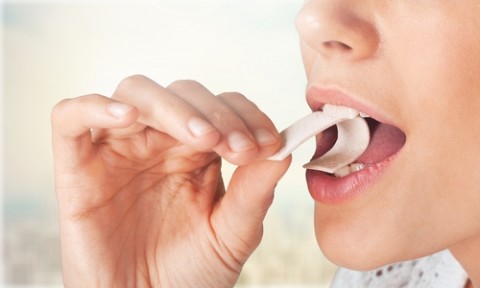What’s the Big Deal About Xylitol?
 An artificial sweetener called Xylitol is making a lot of headlines lately. It looks and tastes just like sugar but has 40 percent fewer calories and will not increase blood sugar levels like sugar. That also means it’s a lot better for your teeth than sugar!
An artificial sweetener called Xylitol is making a lot of headlines lately. It looks and tastes just like sugar but has 40 percent fewer calories and will not increase blood sugar levels like sugar. That also means it’s a lot better for your teeth than sugar!
- Xylitol is classified as a sugar alcohol, a hybrid of sugar and alcohol molecules that encourage the sweet receptors on the tongue to think they're tasting sugar. This makes it ideal to use as a sweetener in sugarless gum, candies, mints and other sugar-free foods.
- Xylitol is natural. Because trace amounts of Xylitol are found in fruits and vegetables like plums, berries, mushrooms, lettuce and corn, Xylitol is considered a natural product. The Xylitol used in your favorite candies and gum can be derived from birch trees, but most often it comes from a plant fiber called xylan. Humans even produce trace amounts of Xylitol in our own bodies!
- Xylitol has a low glycemic index. Unlike sugar, Xylitol does not spike blood sugar or insulin because it contains no fructose. This makes it a great fit for patients with diabetes.
- Xylitol is low-carb. Although sugar alcohols are considered carbohydrates, Xylitol is not classified as a net carb because it doesn’t raise blood sugar, so it’s perfect for people on low-carb diets.
In addition to these impressive benefits, Xylitol is actually beneficial to your teeth! Studies have shown that this impressive sweetener can help kill the bacteria streptococcus mutans (s. mutans) that causes plaque to accumulate on your teeth. S. mutans bacteria thrive on the glucose from sugar left behind on teeth, hence eating lots of candy causes cavities. However, when you consume Xylitol instead of sugar, the s. mutans essentially become sick, because they cannot process Xylitol. When the s. mutans consume Xylitol, it blocks their ability to process glucose, too, which leads them to starve, protecting your teeth in the process.
In addition to killing off all those nasty s. mutans, Xylitol also lowers the acidity of your saliva, helping to reduce cavity-causing acid erosion to your enamel. It also increases saliva production, which reduces the risk of cavities and gum disease due to dry mouth.
The No. 1 question we get about Xylitol is, "Is it safe?" To answer that question, yes, Xylitol is safe for human consumption. What it is not safe for is animals – especially dogs. That’s because unlike in humans, Xylitol does stimulate the release of insulin in dogs - and at an accelerated rate. This puts the dog into hypoglycemia, or liver failure, which is fatal if not treated. Even one piece of gum containing just 1 milligram of Xylitol can cause hypoglycemia, and 10 pieces could be fatal, so be sure if you chew Xylitol gum or eat foods containing Xylitol that you keep them stored where pets cannot get to them, and don’t share your snacks that contain Xylitol with your pets, either!
If you have any oral health-related questions or concerns, or to set up an appointment, give Dr. Lederman a call at 516-882-1764.



